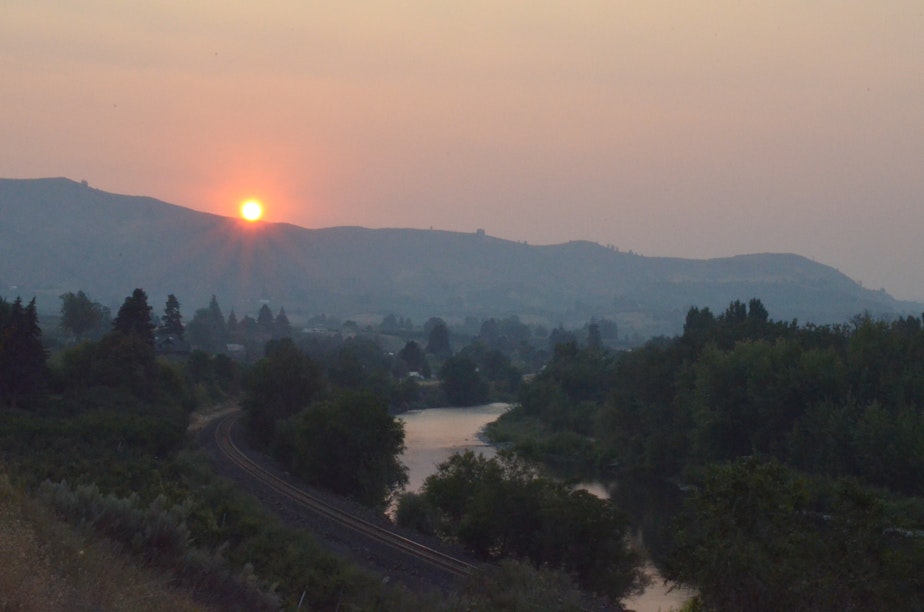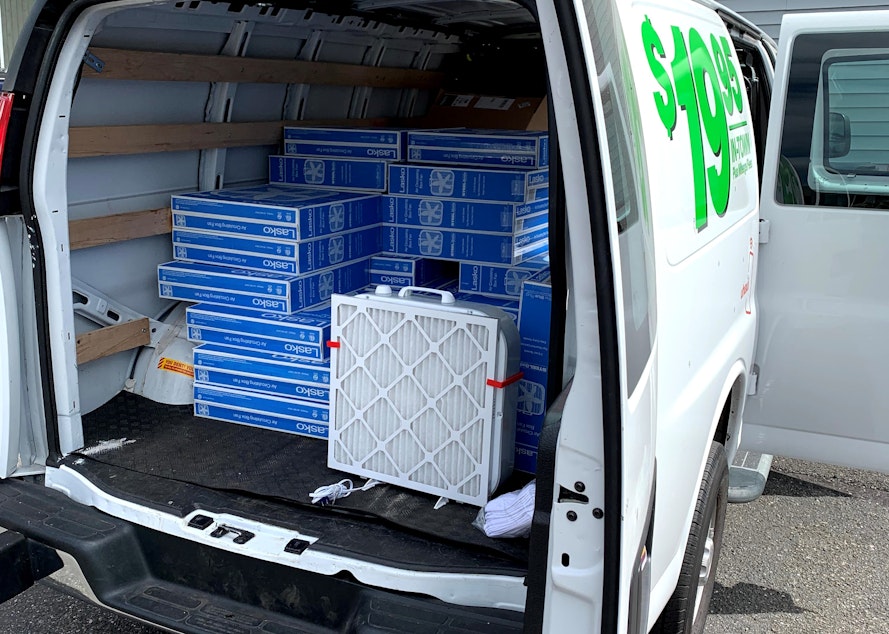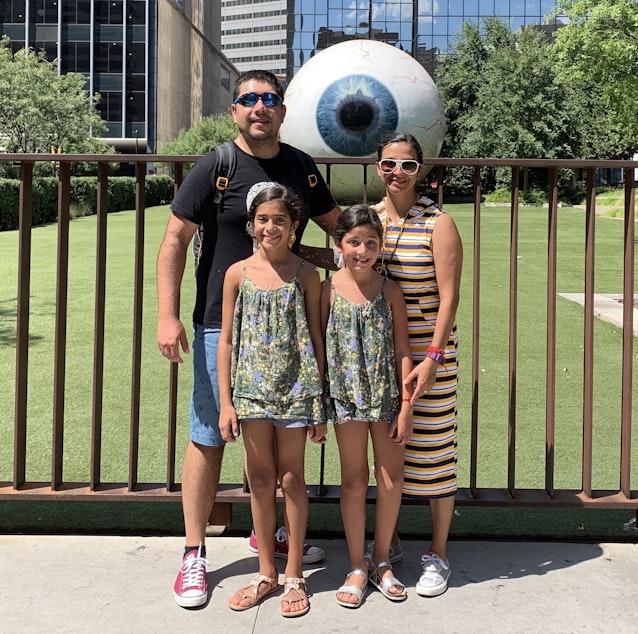The plan if wildfire smoke descends on Seattle during a pandemic? There is none

As smoke blankets northern California and parts of Oregon and Idaho, firefighters also battle flames all over Washington state.
Plumes of smoke similar to those seen in recent years haven’t descended on Seattle, but if they do, researchers fear worse health effects than before -- because of the Covid-19 pandemic.
Officials in the Puget Sound area don't have a plan for protecting residents if the air gets smoky — beyond telling people to just stay home. That said, a spokesperson for Mayor Jenny Durkan said in a statement Friday that the city would consider opening smoke shelters if the air got bad enough. But she said public health officials would be weighing the health risks of air pollution against the health risks of strangers gathering indoors during a pandemic.
Public health, already notoriously underfunded across the country, is maxed out dealing with the coronavirus pandemic.
“It’s really a complicated season with very little capacity,” said Shirlee Tan, with King County Public Health. “We’re stretched thin.”
The problem is that, this year, experts are even more worried about the potential health consequences of smoky air than if there were no pandemic.
Wildfire smoke is always bad for health. It can exacerbate asthma and other respiratory diseases. And it can contribute to long-term health problems, like heart disease. But smoke in the middle of a respiratory pandemic is even worse.
Sponsored
“If we have bad air pollution while Covid-19 is still widely circulating in our community, that could be a recipe for worse impacts than we have with either one alone,” said Joel Kaufman, a professor of public health at the University of Washington.
Kaufman says that wildfire smoke could make it harder for people’s bodies to fight off Covid-19.
“We're worried … that air pollution exposures will worsen people's responses to the infection and cause Covid-19 infections to be worse," he said.
That’s not only because air pollution weakens immune systems, but also because it causes inflammation in the lungs and cardiovascular system, which could interact with Covid-19 to make people very ill.
And, he said, people who are currently recovering from Covid could be more vulnerable to the dangerous effects of air pollution.
Sponsored
In past years, Seattle has had a plan to protect people, particularly the elderly, those with respiratory diseases, and those who are living unsheltered, from the smoke: They invited them to “smoke shelters” — buildings such as community centers and libraries, which have air conditioning and air filtration.
But crowding strangers into public buildings isn’t safe during a pandemic. So this year, those shelters will stay closed.
“Our advice this year is just try to stay home,” said Shirlee Tan, with King County Public Health. “And then look into purchasing a portable air purifier.”
Or, she said, people can clean and cool their homes using a box fan with a filter on the back.
“There’s pretty good data showing that they’re very effective at clearing the air in a short amount of time,” she said.
Sponsored

King County’s public health agency and the Puget Sound Clean Air Agency are handing out filter fans like these in low-income neighborhoods with poor air quality.
In fact, distributing fans to 800 families in a county with 2.25 million residents is the only policy response King County has for wildfire smoke this year.
“It’s not a huge amount, so we’re really trying to make sure it gets to people that absolutely have no other option,” Tan said.
It’s unclear that those fans are making it to the people who need them the most, though, because of how they’re distributed. The Puget Sound Clean Air Agency gave its 600 fans, bought with civil penalty funds, to community groups to hand out.
Sponsored
While some of those community groups are carefully assessing who might need a fan — based on whether they’re elderly or have had Covid-19, for example — and then keeping a list of who’s received one, but other groups have distributed fansto anyone who wants them, without keeping records of who received one.

Elias Barrera lives with his wife and two daughters in an apartment complex in Auburn. Barrera’s younger daughter, 9-year-old Alexa, has always had respiratory problems. He got one of the fans from Puget Sound Clean Air a week ago.
Last time it was smoky in the Seattle area, Alexa's “nose was constipated [stuffed-up] all the time,” Barrera said. “Coughing, coughing with phlegm. When they’re little, it’s a little bit more complicated because they don’t tell us exactly what they feel.”
“I don’t know how to explain it,” his daughter Alexa chimed in. “It’s like clogged.”
Sponsored
Barrera put the filter fan in the living room window to test how it filters the air as it draws it into the apartment.
“You can tell how the [originally white] filter is getting a little darker, so that tells me that it’s working,” he said.
Barrera said he plans to move the fan to his daughter’s bedroom soon.
King County Public Health will be creating its own distribution mechanism for the 200 fans it bought with funding from the Federal Coronavirus Relief Fund.
These options — staying home, buying or building an air filtration system, or receiving a publicly-funded filter fan — only work for people who have homes.
For those who are unsheltered, Tan says two of Seattle’s emergency shelters have air filtration already. Two don’t, and there’s no plan to install anything.
There’s also no plan for those who are living outside or in their cars.




